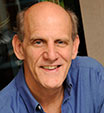Toby Mountain, lecturer and director of studios in the music department, will give a talk titled “The Birth of Stereophonic Recording: How Nazi Germany Perfected and Lost a Revolutionary Audio Recording Technology” on Oct. 30 at 4 p.m. in Rehm Library at the College of the Holy Cross. The event is free and open to the public.
By 1941 the Germans had perfected a recording technology that not only gave them enhanced capabilities for communications and propaganda, but also fundamentally changed the way that music is recorded and produced. That technology was magnetic tape. Strangely enough, their advances were either missed or totally ignored by the Allies until after the war.
Thanks to some mysterious backdoor Cold War diplomacy, we now have hundreds of breathtaking recordings from the World War II period, interpretations of both classical and romantic repertoire from artists of great stature: the conductor Wilhelm Furtwangler, the pianist Walther Gieseking, and great orchestras such as the Berlin and Vienna Philharmonic, the Berlin Radio and the State Opera. Some of these recordings are the very first experiments in stereo, which give us a window into the future of audio.
This lecture will detail the unique cooperation by three competing German companies from 1935 to 1945 to perfect magnetic recording. Their success not only meant the replacement of the phonograph, but also ushered in a new age of stereophonic recording, editing and postproduction. Original excerpts from the German Broadcasting Archive will be played, examined, and compared. Finally, Mountain will draw some strong conclusions about the effects on the postwar music industry, particularly in America.
Mountain has music degrees from Princeton University (Bachelor of Arts, 1972) and the University of California at Berkeley (Master of Arts, 1978, Ph.D., 1981). He spent several years working at the Stanford University Center for Computer Research in Music and Acoustics (CCRMA) and the MIT Experimental Music Studio. He taught music courses, including Theory and Composition, as an associate professor of music at the University of Connecticut from 1983-85.
In 1985, Mountain founded Northeastern Digital, the first digital mastering facility in New England. His mastering credits include such artists as The Beach Boys, David Bowie, Frank Zappa, Richard Thompson, Morphine, Joan Jett, J. Geils, Arlo Guthrie, and Alison Krauss. He has mastered several gold and platinum selling albums and dozens of albums that have been nominated for the National Academy of Recording Arts and Sciences' annual Grammy awards. He is also a member of the Audio Engineering Society, and has published many articles in professional audio journals including Mix and Electronic Musician.
The event is cosponsored by the W. Arthur Garrity Sr. Professorship, the McFarland Center for Religion, Ethics and Culture; the Center for Interdisciplinary studies; and the economics and accounting department.
Related Information
Grammy-Winning Holy Cross Professor to Give Talk on ‘The Birth of Stereophonic Recording’
Read Time
2 Minutes
